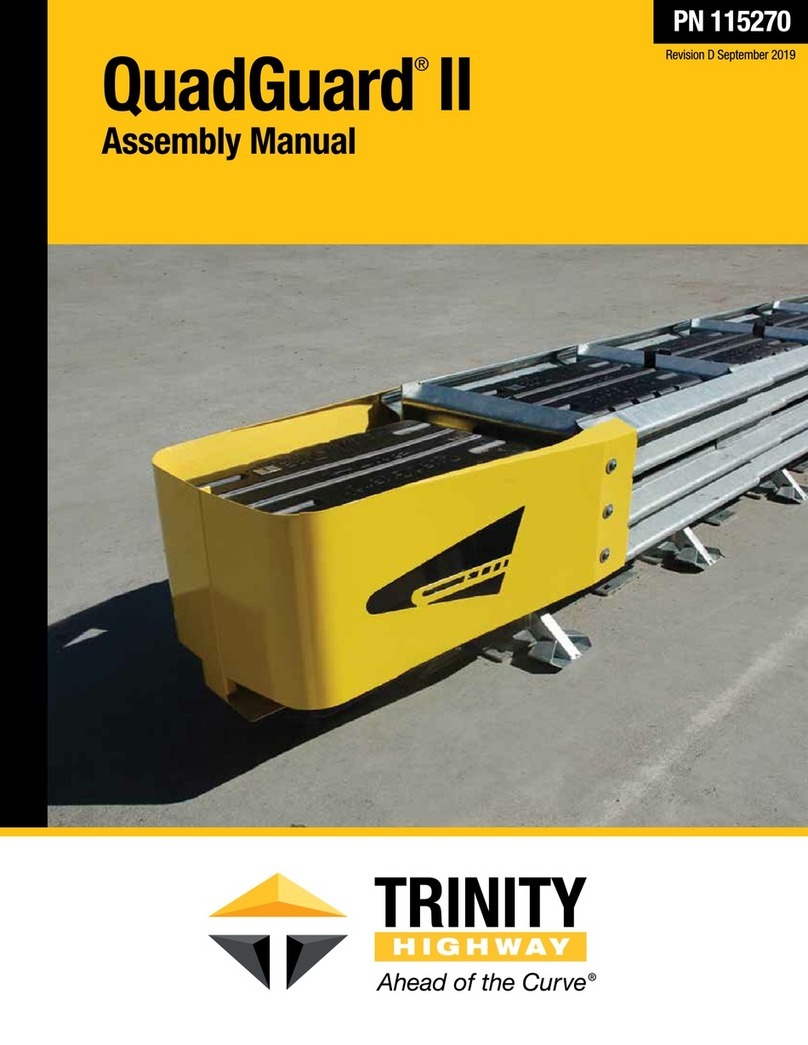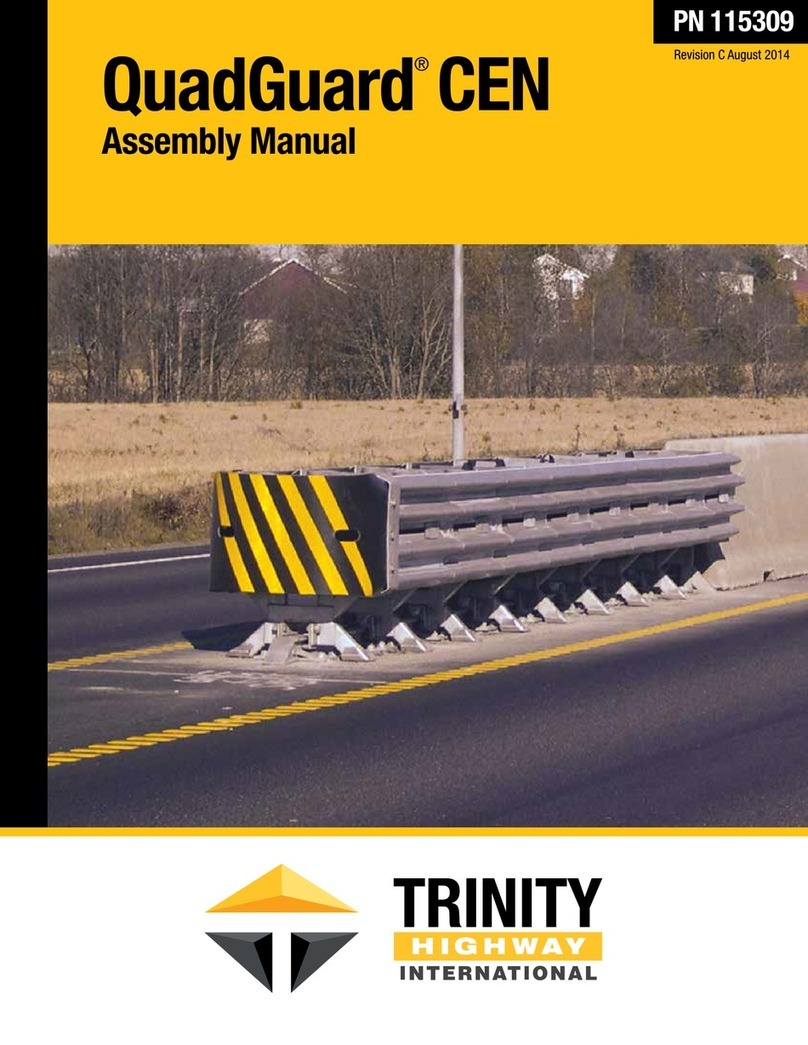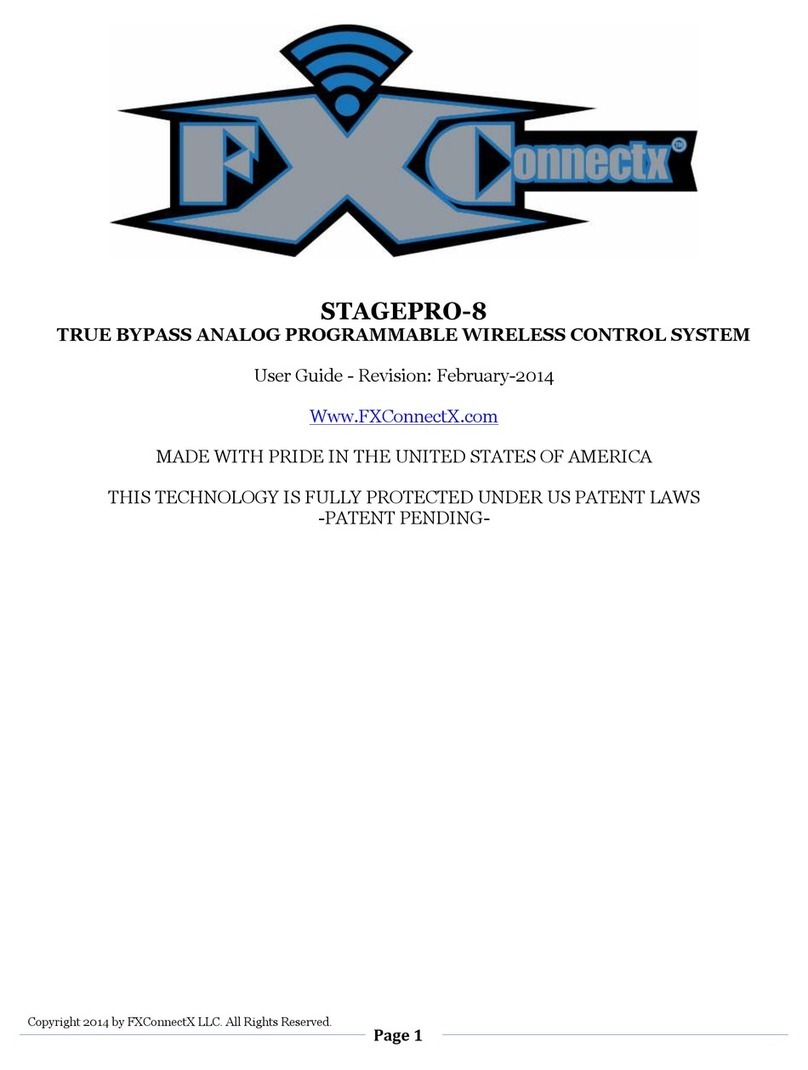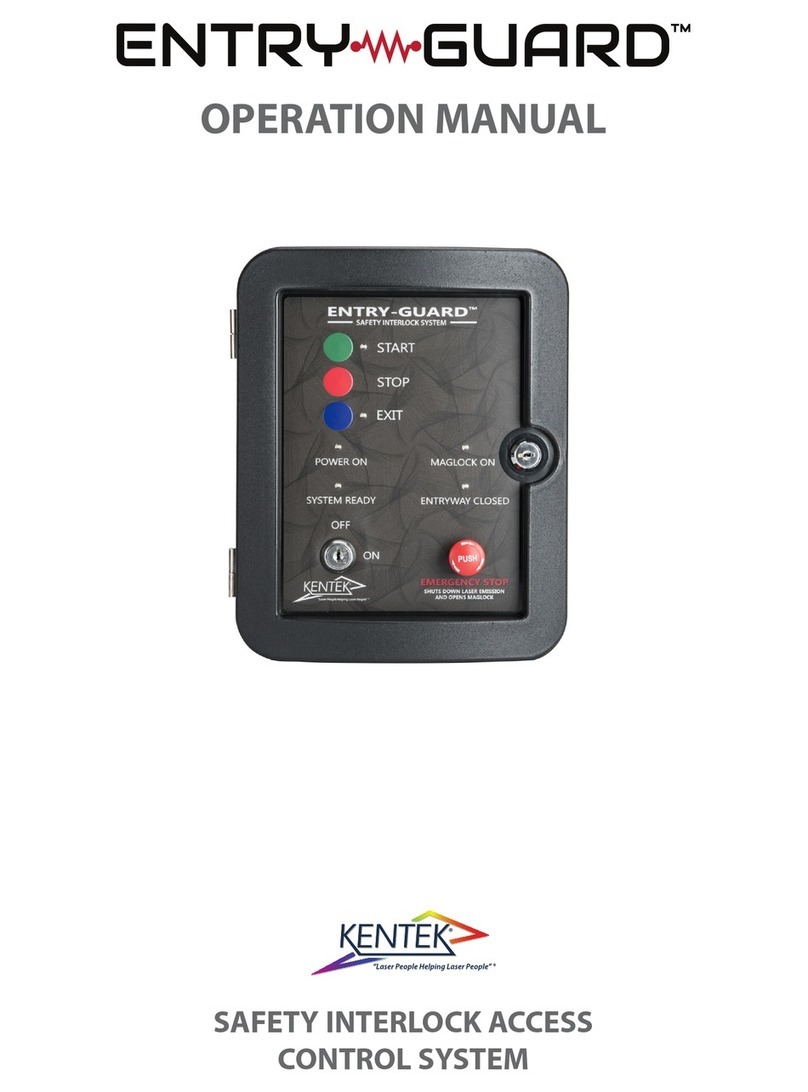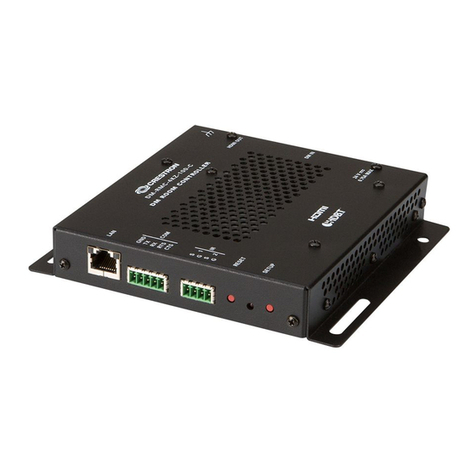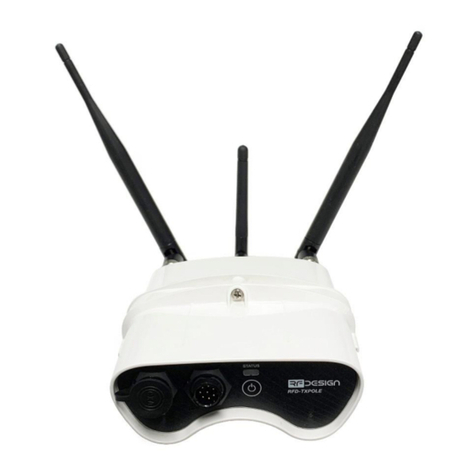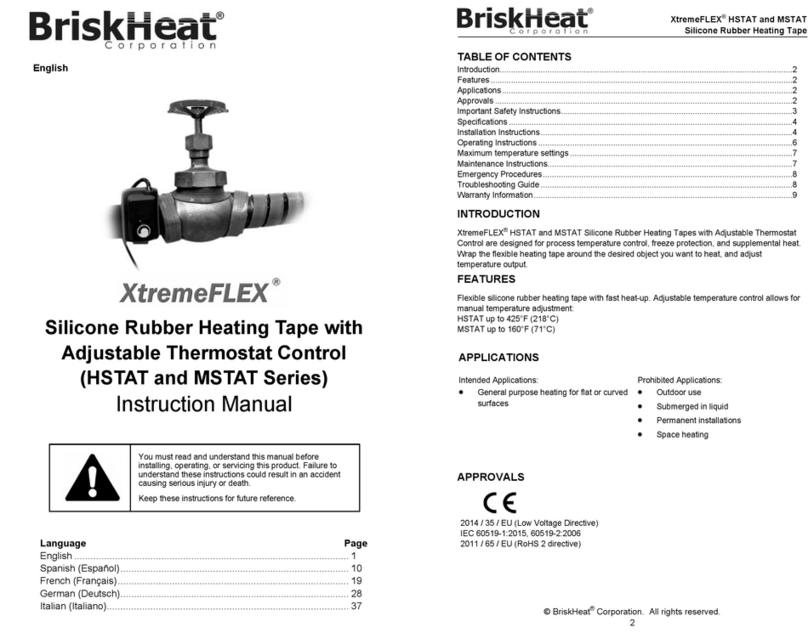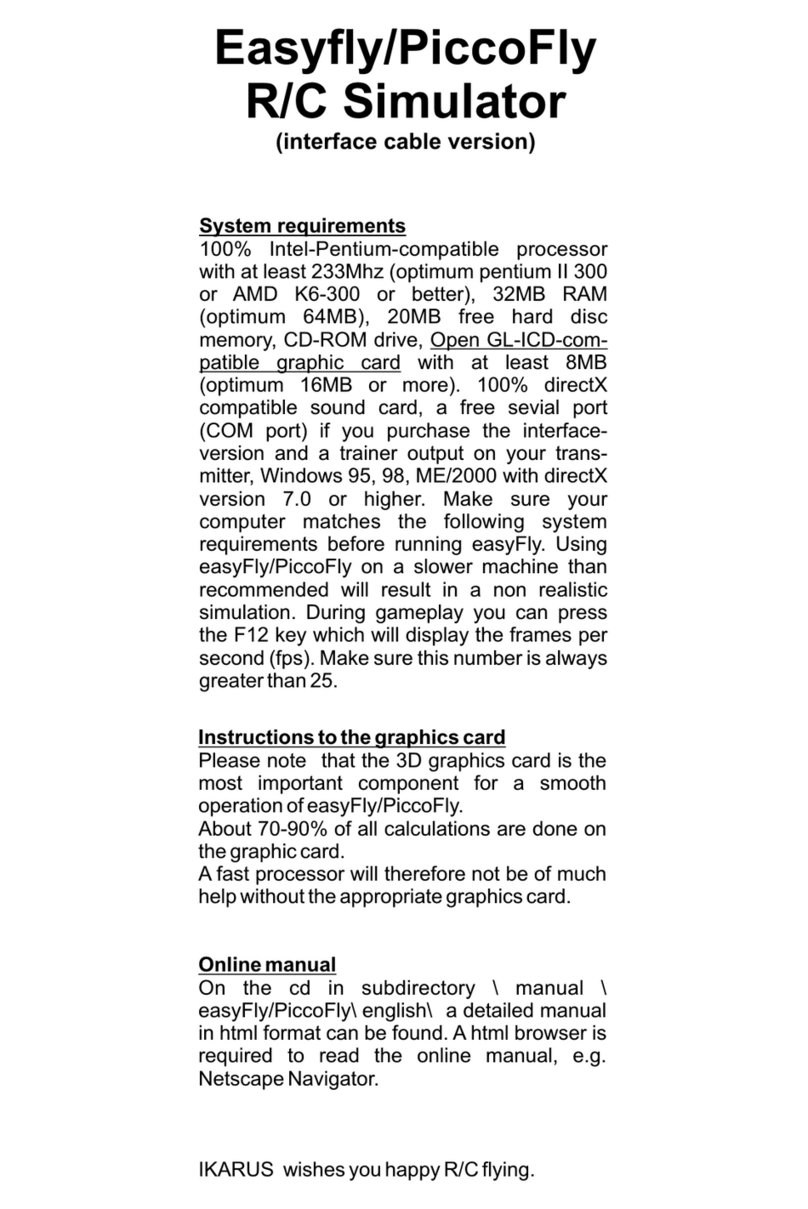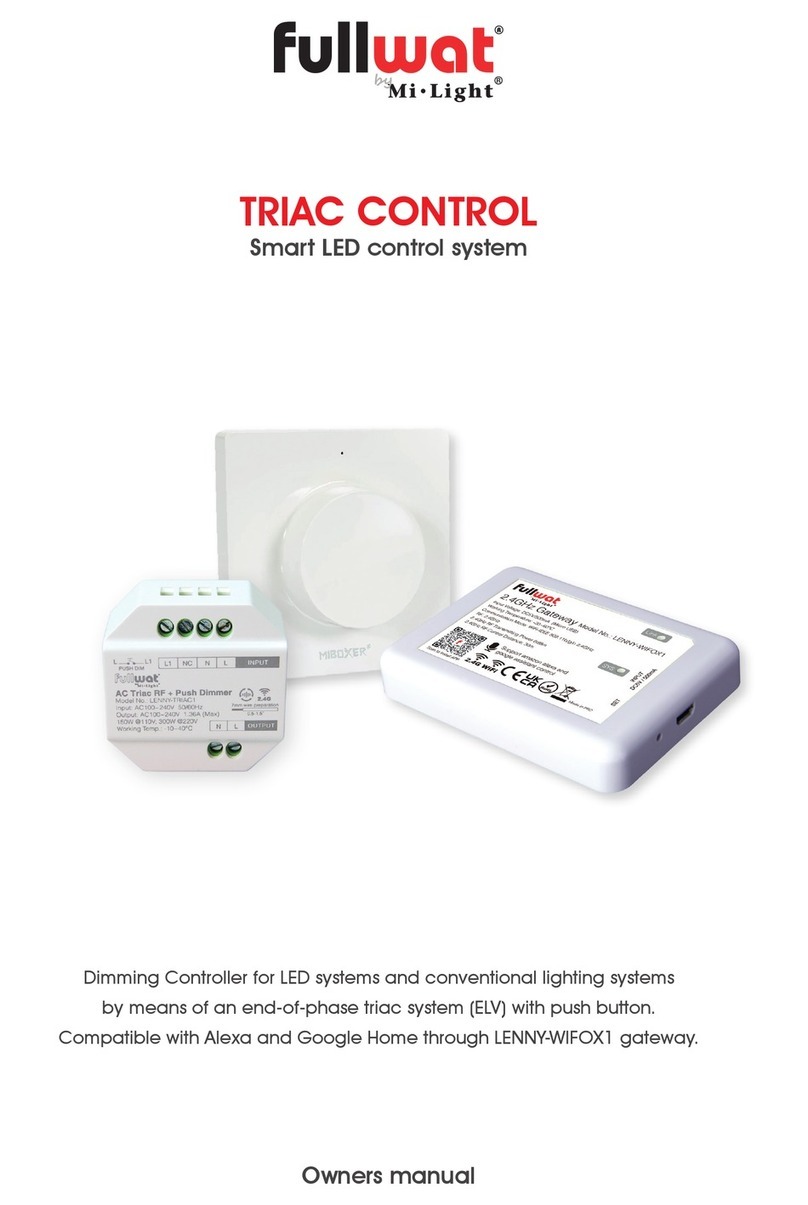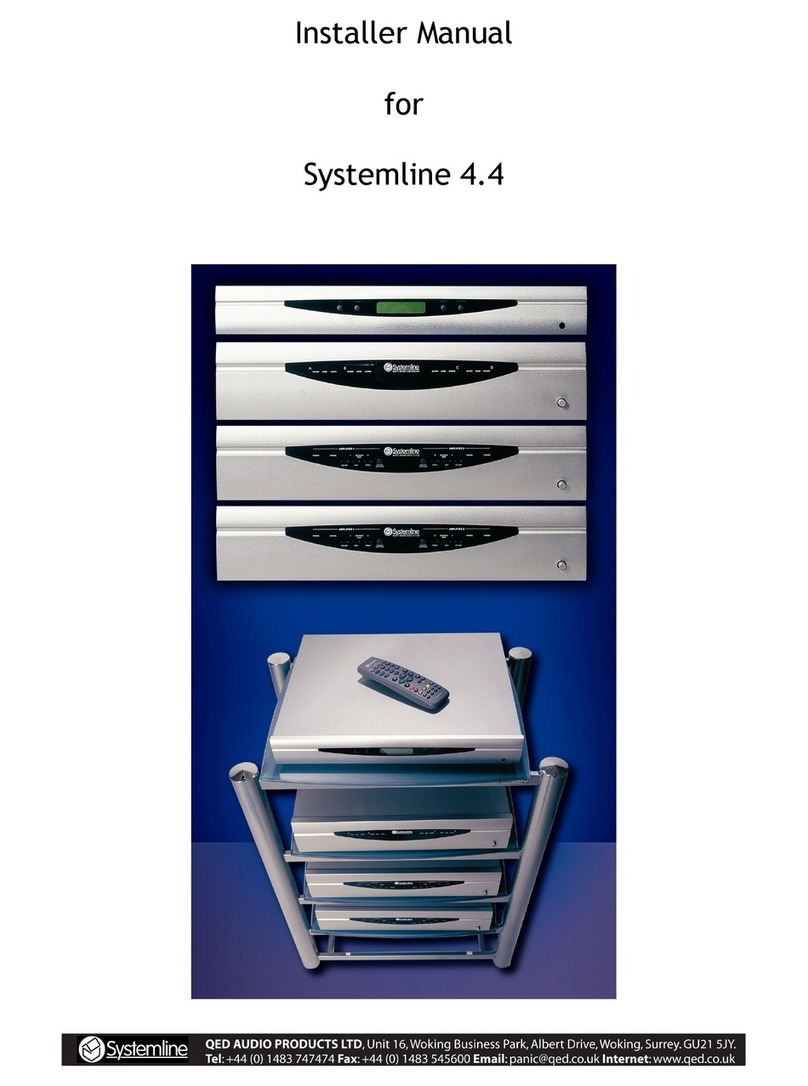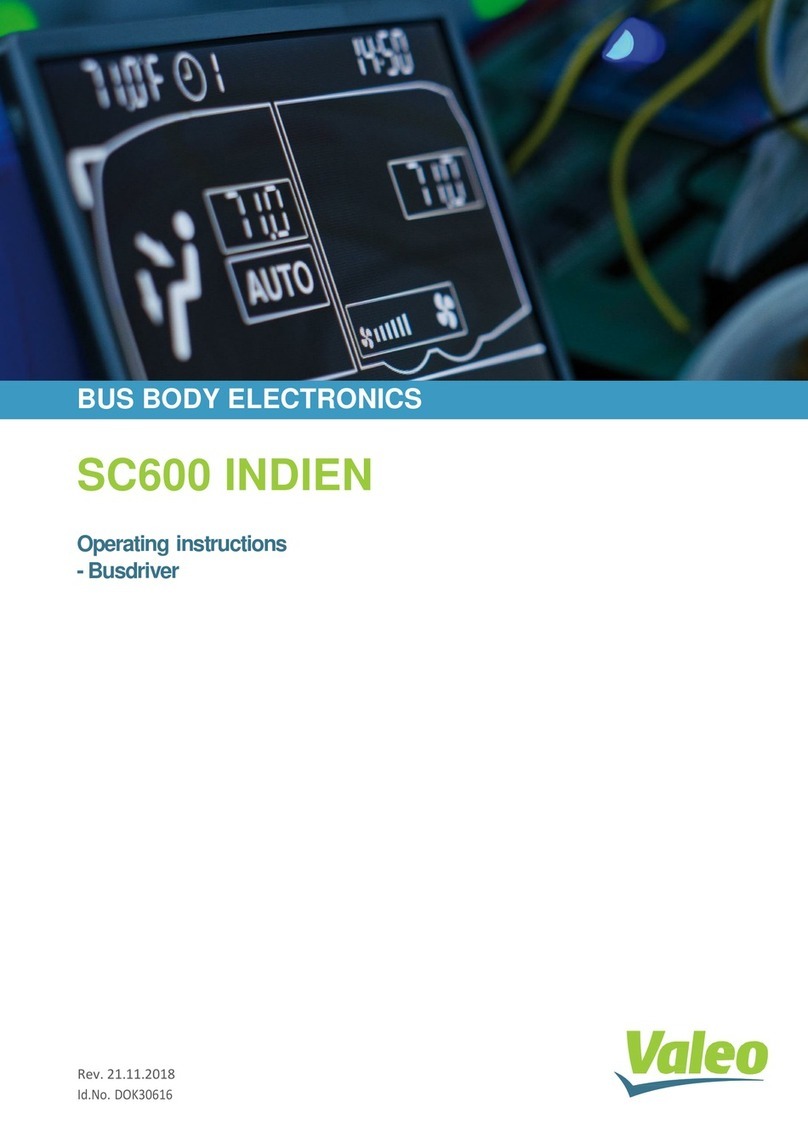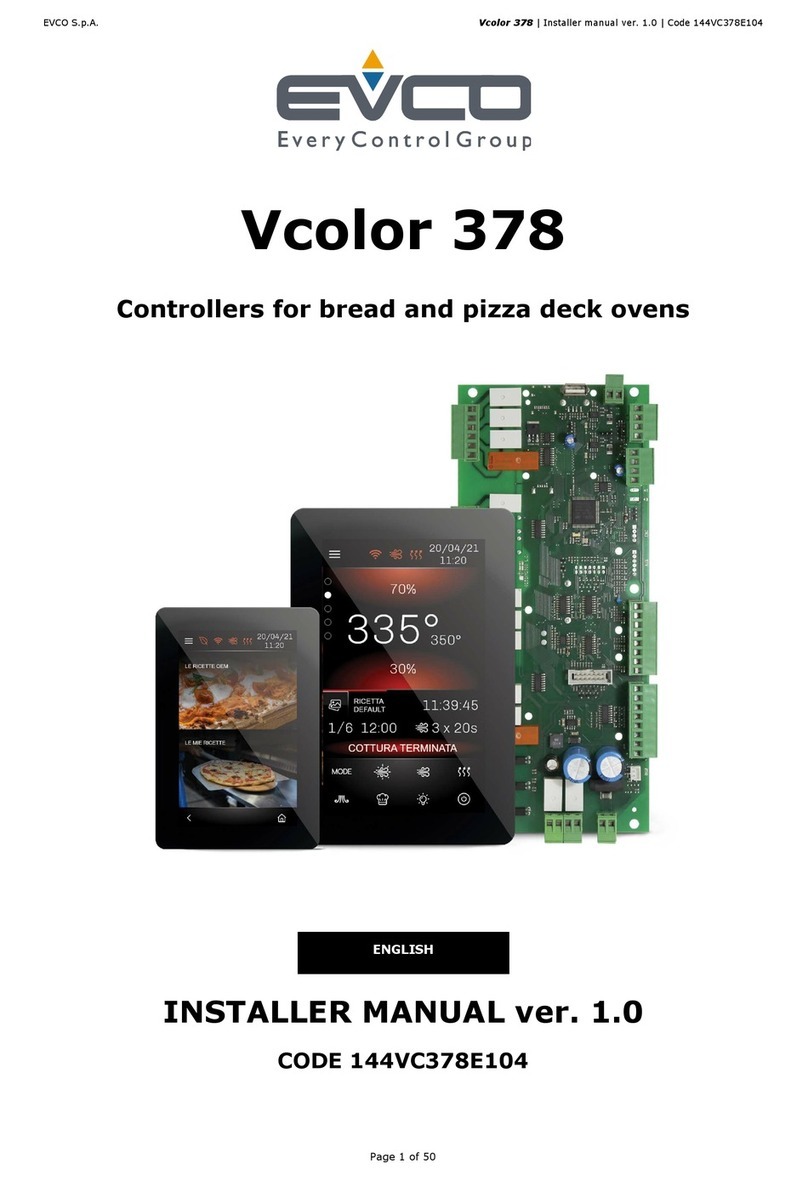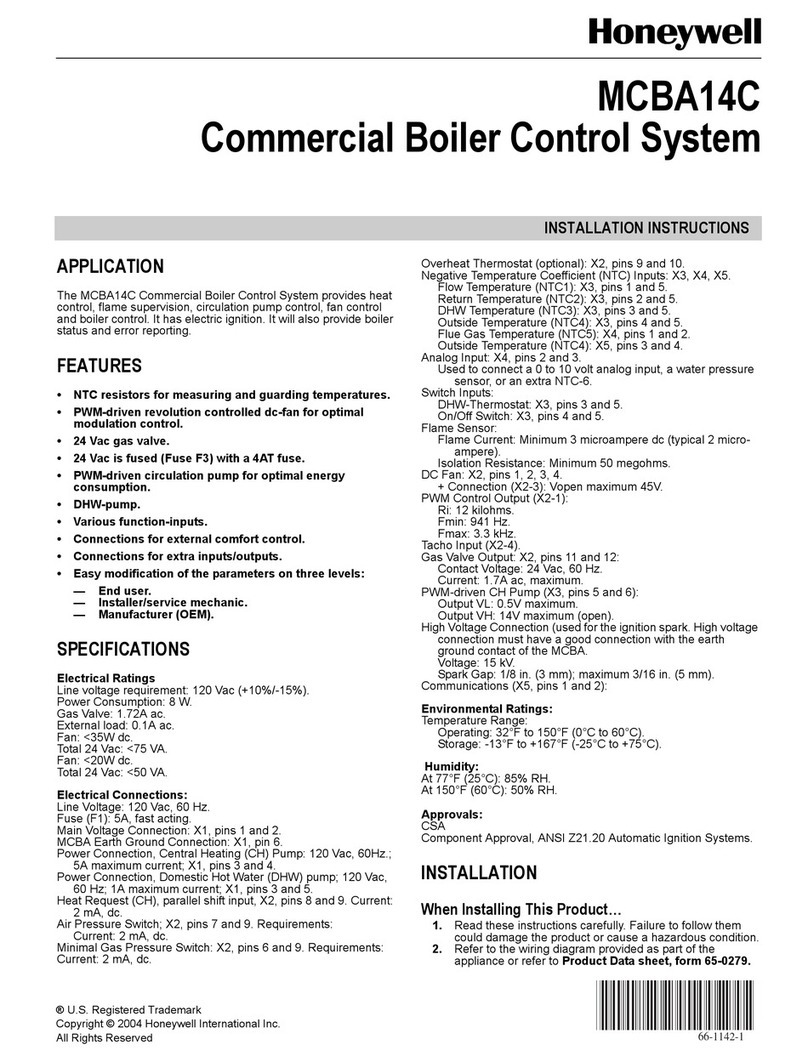Trinity Highway QuadGuard Elite M10 User manual


QuadGuard
®
is a registered trademark of Energy Absorption Systems, Inc.
Part No. 620076
© 2019 Trinity Highway Products, LLC
TrinityHighway.com 1 Revision B October 2019
QuadGuard® Elite M10 [24”]
The QuadGuard
®
Elite M10
has been tested pursuant to American Association of State Highway and
Transportation Officials (“AASHTO”) Manual for Assessing Safety Hardware (“MASH”)
specifications. The QuadGuard
®
Elite M10 has been deemed eligible for Federal-aid reimbursement
on the National Highway System by the Federal Highway Administration (“FHWA”).
Product Description
Assembly Manual
2525 N. Stemmons Freeway
Dallas, Texas 75207
Warning:
The local highway authority, distributors, owners, contractors,
lessors, and lessees are RESPONSIBLE for the assembly, maintenance, and
repair of the QuadGuard
®
Elite M10. Failure to fulfill these
RESPONSIBILITIES with respect to the assembly, maintenance, and repair
of the QuadGuard
®
Elite M10 could result in serious injury or death.
Important:
These instructions are for standard assembly specified by the
appropriate highway authority. In the event the specified system assembly,
maintenance, or repair would require a deviation from standard assembly
parameters, contact a Trinity Highway representative. This system has been
deemed eligible by the FHWA for use on the national highway system under strict
criteria utilized by that agency.
This manual must be available to the worker overseeing and/or assembling the product at
all times. For additional copies, contact Trinity Highway directly at (888) 323-6374 or visit
TrinityHighway.com.
The instructions contained in this manual supersede all previous information and manuals. The
information, illustrations, and specifications in this manual are based on the latest QuadGuard
®
Elite M10 system information available to Trinity Highway at the time of printing. We reserve the
right to make changes at any time. Please contact Trinity Highway to confirm that you are referring
to the most current instructions.

TrinityHighway.com 2 Revision B October 2019
Table of Contents
Customer Service Contacts .......................................................................................................... 3
Important Introductory Notes ........................................................................................................ 3
Safety Symbols ............................................................................................................................. 4
Safety Rules for Assembly............................................................................................................ 4
Limitations and Warnings.............................................................................................................. 5
System Overview .......................................................................................................................... 6
Inspect Shipping...................................................................................................................... 6
System Components............................................................................................................... 7
Recommend Tools...................................................................................................................... 11
Site Preparation/Foundation ................................................................................................. 13
Foundation/Anchoring................................................................................................................. 14
Determine Transition Type....................................................................................................14
Trinity Highway Approved Adhesive Anchoring System ............................................................. 15
Vertical Anchors.................................................................................................................... 15
Anchor Assembly Cautions ................................................................................................... 16
Horizontal Anchors................................................................................................................ 17
Measuring the Width ............................................................................................................. 20
QuadGuard®Elite M10................................................................................................................ 21
Assembly Procedures ...........................................................................................................21
Tension Strut Backup............................................................................................................ 21
QuadGuard®Elite M10 Final Inspection Checklist...................................................................... 37
Maintenance and Repair............................................................................................................. 38
Visual Drive-By Inspection .................................................................................................... 38
Walk-Up Inspection............................................................................................................... 38
Post-Impact Instructions........................................................................................................ 40
Parts Ordering Procedure ..................................................................................................... 42
Maintenance Flow Chart and System Drawings ......................................................................... 43
QuadGuard®Elite M10 w/Tension Strut Backup...................................................................44
Tension Strut Backup Assembly ........................................................................................... 45
Diaphragm Assembly............................................................................................................ 46
Fender Panel Assembly ........................................................................................................47
Bay Assembly ....................................................................................................................... 48
Nose Assembly ..................................................................................................................... 49
Hit Indicator with Hardware................................................................................................... 50
Monorail Assembly................................................................................................................ 51
Concrete Pad ........................................................................................................................ 52

TrinityHighway.com 3 Revision B October 2019
Customer Service Contacts
Trinity Highway is committed to the highest level of customer service. Feedback regarding the
QuadGuard
®
Elite M10 system, its assembly procedures, supporting documentation, and
performance is always welcome. Additional information can be obtained from the contact
information below:
Trinity Highway:
Telephone (888) 323-6374 (USA)
+1 312 467 6750 (International)
E-mail TrinityHighway.com/Contact
Online TrinityHighway.com
Important Introductory Notes
The performance of the QuadGuard
®
Elite M10 as designed, and approved for reimbursement by
the FHWA pursuant to its MASH standard, is dependent upon the proper assembly, deployment
and future maintenance of the system. These instructions should be read in their entirety and
understood before assembling the QuadGuard
®
Elite M10. These instructions are to be used in
conjunction with the assembly of QuadGuard
®
Elite M10 system and are for standard assemblies
only as specified by the applicable highway authority. If you need additional information, or have
questions about the QuadGuard
®
Elite M10, please contact the highway authority that has
planned and specified this assembly and, if needed, contact Trinity Highway Customer Service.
This product must be assembled in the location specified by the appropriate highway authority. If
there are deviations, alterations, or departures from the assembly protocol specified in this
manual, the device may not perform as tested.
Important:
DO NOT use any component part that has not been specifically
approved for this system during the assembly or repair of this system.
This product has been specified for use by the appropriate highway authority and has been
provided to that user who has unique knowledge of how this system is to be assembled. No
person should be permitted to assist in the assembly, maintenance, or repair of this system that
does not possess the unique knowledge described herein. These instructions are intended for
an individual qualified to both read and accurately interpret them as written. These instructions
are intended only for an individual experienced and skilled in the assembly of highway products
that are specified and selected by the highway authority.
A Manufacturer’s Drawing Package will be supplied by Trinity Highway upon request. Each
system will be supplied with a specific drawing package unique to that system. Such drawings
take precedence over information in this manual and shall be studied thoroughly by a qualified
individual who is skilled in interpreting them before the start of any product assembly.

TrinityHighway.com 4 Revision B October 2019
Safety Symbols
This section describes the safety symbols that appear in this QuadGuard
®
Elite M10 manual.
Read the manual for complete safety and assembly information.
Symbol Meaning
Safety Alert Symbol:
Indicates Important, Caution, Warning, or Danger. Failure
to read and follow the Important, Caution, Warning, or Danger indicators could
result in serious injury or death to workers and/or bystanders.
Warning:
Read safety instructions thoroughly and follow the assembly directions
and suggested safe practices before assembling, maintaining, or repairing the
QuadGuard
®
Elite M10. It is the responsibility of the installer to follow the
instructions contained in this manual. Failure to comply with these warnings could
result in increased risk of serious injury of death in the event of a vehicle impact.
Important:
Please keep up-to-date instructions for later use and reference by
anyone involved in the assembly of the product.
Safety Rules for Assembly
* Important Safety Instructions *
This manual must be kept in a location where it is readily available to persons who are skilled and
experienced in the assembly, maintenance, or repair of the QuadGuard
®
Elite M10. Additional
copies of this manual are available from Trinity Highway by calling (888) 323-6374 or at
TrinityHighway.com/Contact. Please contact Trinity Highway if you have any questions
concerning the information in this manual or about the QuadGuard
®
Elite M10.
It is the responsibility of the installer to use appropriate safety precautions when operating power
equipment, mixing chemicals, and when moving heavy equipment or QuadGuard
®
Elite M10
components. Safety articles including but not necessarily limited to work gloves, eye protection,
safety-toe shoes, and back protection should be used.
Warning:
It is the responsibility of the installer to use all safety measures
incorporating appropriate traffic control devices specified by the highway authority.
These measures must be used to protect all personnel while at the assembly,
maintenance, or repair site.
Warning:
Failure to comply with these warnings could result in increased risk of
serious injury or death in the event of a vehicle impact with a system that has not
been accepted by the FHWA.
Warning:
Use only Trinity Highway parts on the QuadGuard
®
Elite M10 for
assembly, maintenance, or repair. The use of component parts not specified herein
is strictly prohibited. The QuadGuard
®
Elite M10 assembled with Trinity Highway
Parts has been tested, approved, and accepted for state use by the FHWA. A
QuadGuard
®
Elite M10 Assembly using parts other than those specified herein has
not been tested, approved, or accepted for state use by the FHWA. Failure to follow
this warning could result in increased risk of serious injury or death in the event of
a vehicle impact.

TrinityHighway.com 5 Revision B October 2019
Limitations and Warnings
Pursuant to MASH “Recommended Procedures for the Safety Performance of Highway Safety
Features”, Trinity Highway contracts with FHWA approved testing facilities to perform and
evaluate crash tests to prepare a crash test results report. Trinity Highway is then able to submit
a Request for Federal Aid Reimbursement of Safety Hardware Devices to the FHWA for review.
The QuadGuard®Elite M10 has been deemed eligible by FHWA as meeting the requirements
and guidelines of MASH. These tests evaluate product performance defined by AASHTO
involving lightweight cars (approx. 2420 lb. [1100 kg]) and full size pickup trucks (approx. 5000
lb. [2270 kg]). A product can be certified for multiple Test Levels. The QuadGuard®Elite M10 is
certified to the Test Level(s) as shown below:
Test Level 3: 62 mph [100 kph]
These AASHTO directed tests are not intended to represent the performance of systems
when impacted by every vehicle type or every impact condition existing on the roadway.
This system is tested only to the test matrix criteria of MASH as approved by FHWA.
Trinity Highway expressly disclaims any warranty or liability for injury or damage to persons or
property resulting from any impact, collision or harmful contact with products, other vehicles, or
nearby hazards or objects by any vehicle, object or person, whether or not the products were
assembled in consultation with Trinity Highway or by third parties.
The QuadGuard®Elite M10 system is intended to be assembled, delineated, and maintained
within specific state and federal guidelines. It is important for the highway authority specifying the
use of a highway product to select the most appropriate product configuration for site
specifications. The customer should be careful to properly select, assemble, and maintain the
product. Careful evaluation of site layout, traffic speed/type, direction, and visibility are some of
the elements that require evaluation by the highway authority in the selection of a highway
product. For example, curbs could cause an untested effect on an impacting vehicle.
After an impact occurs, the debris from the impact should be removed from the area immediately
and the specified highway product should be evaluated and restored to its original specified
condition or replaced as the highway authority determines as soon as possible.
Warning: Do not assemble, maintain, or repair the QuadGuard®Elite M10 until
you have read this manual thoroughly and completely understand it. Ensure that
all Danger, Warning, Caution, and Important statements within the manual are
completely followed. Please call Trinity Highway at (888) 323-6374 if you do not
understand these instructions.
Warning: Ensure that all of the QuadGuard®Elite M10 Danger, Warning, Caution,
and Important statements within the QuadGuard®Elite M10 manual are completely
followed. Failure to follow this warning could result in serious injury or death in the
event of a collision.

TrinityHighway.com 6 Revision B October 2019
System Overview
The QuadGuard®Elite M10 is a potentially reusable, re-directive, non-gating crash cushion for
roadside features of 24” [610 mm]. It consists of energy-absorbing high density polyethylene
cylinders surrounded by a framework of Quad-Beam Panels.
Important: Trinity Highway makes no recommendation whether use or
reuse of any part of the system is appropriate or acceptable following an
impact. It is the sole responsibility of the project engineer and/or the local
highway authority and its engineers to make that determination. It is critical
that you inspect this product after assembly is complete to make certain that
the instructions provided in this manual have been strictly followed.
The QuadGuard®Elite M10 system utilizes two types of Cylinders in a “staged” configuration that
are designed and tested to address vehicles as defined by MASH for both lighter cars and heavier,
high center-of-gravity vehicles.
Impact Performance
The 8Bay QuadGuard®Elite M10 systems have successfully passed the requirements stipulated
in MASH, Test Level 3 tests with both the light car and pickup trucks at speeds of up to 62 mph
[100 kph] at angles up to 25 degrees.
During head-on impact testing, within MASH criteria, the QuadGuard®Elite M10 has been shown
to telescope rearward to absorb the energy of impact. When impacted from the side, within the
applicable MASH criteria, it has been shown to redirect the vehicle back toward its original travel
path and away from the highway feature.
Warning: It is the sole responsibility of the project engineer and/or local highway
authority and its engineer to ensure that the QuadGuard®Elite M10 and delineation
used meet all federal, state, specifying agency, and local specifications.
Warning: It is the sole responsibility of the project engineer and/or local highway
authority and its engineer to ensure that the QuadGuard®Elite M10 meets all
appropriate Manual on Uniform Traffic Control Devices (“MUTCD”) and local
standards.
Inspect Shipping
Check the received parts against the shipping list supplied with the system before deploying the
QuadGuard®Elite M10. Make sure all parts have been received (pp. 7 - 11).
Important: The Manufacturer’s Drawing Package supplied with the QuadGuard®
Elite M10 must be used with these instructions for proper assembly and should
take precedence over these general instructions.
Warning: Do NOT modify the QuadGuard®Elite M10 in any way.

TrinityHighway.com 7 Revision B October 2019
System Components
Below is a list of system components that may be used in your particular QuadGuard
®
Elite M10
configuration. Verify parts delivered and system details with the BOM (Bill of Materials) and
system drawings shipped with your system. Please call Trinity Highway if you have any system
questions (p. 3).
Note:
Components are not shown to scale.
Tension Strut Backup 24” Diaphragm 24” Belt Nose, Y
618857 625647 605100
Flat Screw 5/8X5,G8 Die Spring, 5/8 X 1 1/2 Rail Nut, Hex, 5/8
116878 117459 003340
Mushroom Washer Rail Bolt, 5/8”X2”, G5 Nose Assy 24, M10, QGE, Y
617045 118614 618843

TrinityHighway.com 8 Revision B October 2019
Cylinder Nose, HDPE, 28X20 Extension, Backup, M10, QGE Bolt, Hex,3/4X5,G5,G
606689 618536 113573
Plate, Nose Cylinder, G Bolt, Hex, 5/8X3 1/2, G5 Panel, Fender, QG
612253 113660 611832
Bolt, Hex, 5/8X2, G5 Washer, Flat, 5/8X1 3/4 Washer, Lock, 5/8
118570 003300 118100
Bolt, Hex, 3/4X9,G5,G Washer, Lock, 3/4 Nut, Hex, 5/8
118563 118089 115970

TrinityHighway.com 9 Revision B October 2019
Bolt, Hex, 3/4X2, G8 Monorail Guide Nut, Heavy Hex, 3/4
113555 611368 003704
Panel, Side, QG Extension, Diaphragm, Flat Flt St 3/16X2X13, W/Holes
611898 618525 618652
Bolt, Hex 5/8”X9” A325 Bolt, Hex 1/2”X3 1/2”, G5 Nut, Hex 1/2”
004489 113474 115939
Washer, Flat 1/2”X1 3/8” Washer, Lock 1/2” Stop, Tab, Weldment, G
118009 118082 614666

TrinityHighway.com 10 Revision B October 2019
Monorail, One Bay, QG, G Monorail, Three Bays, QG, G Clamp, Nose Belt, QG, G
611370 611379 606330
Stud, 3/4X6 1/2, G5 Stud, 3/4X7, G5 Bolt, Hex, 3/4X9,G5,G
117540 117542 118563
Washer, Flat, 3/4X2 End Cap, Monorail, QG, G Approved Adhesive
118027 608136 619316
Cylinder ME1 MASH Cylinder ME2 MASH Cylinder Assy ME3 MASH
618538 618649 618702

TrinityHighway.com 11 Revision B October 2019
Spring Torsion .078 LH ST Spring torsion .078 RH ST Bracket Hit Indicator LMC
117466 117467 605464
Recommend Tools
Documentation
Manufacturer’s Assembly Manual
Manufacturer’s Drawing Package
Personal Protective equipment
Eye Protection
Gloves
Safety Toe Shoes
Cutting equipment
Rotary Hammer Drill
Rebar cutting bit
Concrete drill (Double Fluted*) bits – 22 mm [7/8”]
Grinder, Hacksaw or Torch (optional)
Drill motor
Drill bits 1/16” through 7/8”
Important:
Trinity Highway recommends using Double Fluted drills to achieve
required tensile strength when assembling the approved anchoring system.
Hammers
Sledgehammer
Standard hammer

TrinityHighway.com 12 Revision B October 2019
Wrenches
Heavy duty impact wrench
Standard adjustable wrench
1/2" drive Sockets: 9/16", 11/16", 3/4", 15/16", 1 1/8", 1 1/4"
1/2" drive Deep Sockets: 15/16", 1 1/4"
1/2" drive Ratchet and attachments
1/2" drive Breaker Bar - 24" long
1/2" drive Torque Wrench: 200 ft.-lbs.
Crescent Wrench: 12” [300 mm]
Allen Wrench: 3/8”
Impact Wrench: 1/2"
Important: Because every impact is different, Trinity Highway makes no
recommendation whether use or reuse of any part of the system is
appropriate or acceptable following an impact. It is the sole responsibility
of the project engineer and/or the local highway authority and its engineers
to make that determination. It is critical that you inspect this product after
assembly is complete to make certain that the instructions provided in this
manual have been strictly followed.
Miscellaneous
Traffic control equipment
Lifting and moving equipment - Minimum 5,000 lb. capacity required
Air Compressor (100 psi) and Generator (5 kW)
Pry bar
Drift pin 300 mm [12”]
Center punch
Tape measure 25’ [7.5 m]
Chalk line
Concrete marking pencil
Nylon bottle brush for cleaning 7/8” drilled holes
Rags, water, and solvent for touch-up
Chain, 3/8” grade 40, 20’ [6 m] with 1/2” [13 mm] hooks
Acetylene torch
Note: The above list of tools is a general recommendation and should not be considered
an extensive list. Depending on specific site conditions and the complexity of the
assembly specified by the appropriate highway authority, the required tools may vary.
Decisions as to what tools are needed to perform the job are entirely within the discretion
of the specifying highway authority and the authority’s selected contractor performing the
assembly of the system at the authority’s specified assembly site.

TrinityHighway.com 13 Revision B October 2019
Site Preparation/Foundation
A QuadGuard®Elite M10 should be assembled only on an existing or freshly placed and cured
concrete foundation (4000 psi [28 MPa] minimum). Location and orientation of the concrete base
and attenuator must comply with project plans or as otherwise determined by the resident project
engineer.
Recommended dimension and reinforcement specifications for new concrete foundations are
provided in Trinity Highway Concrete Foundation drawing, supplied with the system. The system
may only be assembled on reinforced concrete roadway (minimum 6” [150 mm] thick). Assembly
cross-slope shall not exceed 8% and should not twist more than 2% over the length of the system;
the foundation surface shall have a light broom finish.
Caution: Accurate placement of all steel rebar is critical to avoid interference with
the concrete anchor bolts.
Warning: Location of the Backup in relation to nearby objects will affect the
operation of the attenuator. Upon impact, the Fender Panels telescope rearward
and extend beyond the rigid Backup as much as 25” [635 mm]. Position the Backup
so that the rear ends of the last Fender Panels are a minimum of 25” [635 mm]
forward of objects that would otherwise interfere with movement of the rearmost
Fender Panels. Failure to comply with this requirement is likely to result in system
performance which has not been crash tested pursuant to MASH criteria and may
also cause component damage which will necessitate maintenance or
replacement of the system.
Warning: Ensure that there is proper site grading for the QuadGuard®Elite M10
placement as dictated by the state or specifying agency pursuant to the AASHTO
Roadside Design Guide.
Figure 1
Cross-Slope
8% (5○) (12:1)
MAXIMUM
LEVELING PAD
(SHOWN EXAGGERATED FOR
CLARITY)

TrinityHighway.com 14 Revision B October 2019
Foundation/Anchoring
Warning:
It is the responsibility of the local DOT or appropriate highway authority
to ensure that this assembly conforms to the AASHTO Roadside Design Guide.
Warning:
It is the responsibility of the installer to ensure that your assembly
procedure meets all appropriate Occupational Safety and Health Administration
(“OSHA”) and local standards.
Asphalt Installations
Warning:
QuadGuard
®
Elite M10 systems have not been tested on asphalt.
Concrete Installations
For concrete installations, the QuadGuard
®
Elite M10 system should be installed only on an
existing or freshly placed and cured concrete base (4000 psi [28 MPa] minimum). Orientation of
the concrete base and the attenuator must comply with the project plans or as otherwise
determined by the resident project engineer or appropriate highway authority.
Recommended dimension and reinforcement specifications for new concrete pads can be found
on the standard drawings.
Concrete Pad or Roadway
Foundation: 150 mm [6”] minimum depth P.C.C.
Anchorage: Approved adhesive
with 180 mm [7”] studs 140 mm [5 3/4”] embedment
Determine Transition Type
Note:
A proper Transition Panel or Side Panel must be used on each side of the Backup. A Side
Panel is not needed when a Transition Panel is used.
Note: The proper Transition Panel or Side Panel must be used for proper Transition Panel impact
performance of the system. The correct panel to use will depend on the direction of traffic and
what type of highway feature the QuadGuard
®
Elite M10 is shielding. Contact the Customer
Service Department prior to assembly if you have any questions (p. 3).
Figure 2
Side Panel

TrinityHighway.com 15 Revision B October 2019
Trinity Highway Approved Adhesive Anchoring System
A Trinity Highway approved adhesive anchoring system is required to securely anchor crash
cushions. Each approved adhesive kit contains adhesive, studs, nuts and washers. Both vertical
and horizontal assemblies are possible using an approved adhesive anchoring system.
Vertical Anchors
Note: Read all Trinity Highway approved adhesive instructions before starting.
1) Prepare the Concrete Foundation
Warning: Do not allow anchoring adhesive to contact skin or eyes. See material
safety data sheet supplied with adhesive kit for first-aid procedures. Use only in
well-ventilated area. Do not use near open flame.
Warning: It is the responsibility of the installer to maintain a safe work area
including the use of standard work zone safety equipment & PPE: gloves, safety-
toe shoes, and eye / ear protection.
The anchor bolts (studs) that anchor the QuadGuard®Elite M10 Backup and/or Monorail
sections to the concrete foundation must be those shipped in the kit or of high strength steel
(120,000 psi [830 MPa] minimum tensile strength or equal). These studs must be set in
minimum 4000 psi [28 MPa] concrete. Allow the concrete to cure a minimum of seven days
before applying anchoring adhesive.
2) Drill Boreholes
Caution: It is the responsibility of the installer to consult OSHA silica
respiratory standard 29 CFR 1910.134 for debris removal from borehole(s)
and use Trinity Highway approved adhesive to achieve optimum tensile
strength. Do not use diamond drill bits for drilling boreholes.
Use the Monorail(s) and Tension Strut Backup as drilling templates. Use a rotary hammer drill
to drill the boreholes 7/8” [22 mm] diameter to the recommended depth. See the approved
adhesive instructions provided with adhesive kit. Check to ensure each borehole is drilled to
the proper depth and aligned with the part to be anchored per Anchoring Information table.
Anchor Information
Stud Size: Orientation Bit Size Minimum Depth Torque Medium
3/4” X 6 1/2" Horizontal 22 mm [7/8”] 125 mm [5”] Manufacturer Spec Concrete
3/4” X 7" Vertical 22 mm [7/8”] 146 mm [5 3/4”] Manufacturer Spec Concrete
3) Clean the Boreholes
Blow the concrete dust from the borehole using (90 psi) oil-free compressed air. Thoroughly
brush the borehole with a 7/8” diameter steel bristle tube brush and then blow it out again. If
the borehole is wet, completely flush it with water while brushing and then blow it clean to
remove all water using oil-free compressed air.
Note: Use of the Trinity Highway approved vacuum drilling equipment is authorized to replace
the blowing and brushing requirement of Step 3.

TrinityHighway.com 16 Revision B October 2019
4) Apply Approved Adhesive
Fill the borehole 100% full.
Caution: Fill borehole 100% full so it is even with the pavement surface per the
adhesive manufacturer’s instructions.
5) Add the Washers and Nuts
Place a flat washer onto the stud then thread a nut on until the end of
the stud is flush with the nut (Figure 3).
6) Insert Studs in Boreholes and Wait for Adhesive to Cure
Push the stud down through the part to be anchored and into the
borehole.
Warning: Do not disturb or load the stud until the approved
adhesive material has fully cured (reference instructions
supplied with the approved adhesive kit).
7) Torque the Nuts
Once the adhesive has fully cured, torque the nut to the adhesive manufacturer’s
recommended values.
Anchor Assembly Cautions
1) Steel rebar
If steel rebar is encountered while drilling an anchor bolt borehole, apply one of the following
solutions:
A) Use a rebar drill bit for the rebar only and then switch back to the concrete bit to finish
drilling into the underlying concrete until the proper borehole depth is reached.
Caution: Do not drill through rebar without first obtaining permission to do so
from the project engineer.
B) Drill a new borehole down at an angle past the rebar to the proper depth. Anchor the
stud by completely filling both boreholes with an approved adhesive.
Figure 3
Anchor Application
(Before Applied Torque)

TrinityHighway.com 17 Revision B October 2019
Horizontal Anchors
The horizontal approved adhesive kit is the same as the vertical kit.
Caution:
Fill borehole 100% full so it is even with the vertical concrete surface
per manufacturer’s instructions.
1) Follow the instructions supplied with your approved adhesive kit
Apply approved adhesive to each anchor per instructions.
2) Add the Washers and Nuts
Put washer and nut on stud so the nut is flush with end of stud.
3) Insert each Stud with Washer and Nut into Borehole
Push stud with washer and nut into borehole.
Important:
The stud should be flush with the top of the nut in both vertical and
horizontal applications prior to tightening (Figure 4).
Caution:
Do not disturb or load the stud until the approved adhesive material has
hardened (reference approved adhesive kit instructions for hardening times).
4) Torque the nuts
Once the adhesive has fully cured, torque nut(s) to the approved adhesive manufacturers
specification.
Figure 4
Horizontal Application
(Before Applied Torque)
CORRECT
INCORRECT

TrinityHighway.com 18 Revision B October 2019
Figure 6 Elevation View
6
5
4
1 2 3
ME2
Figure 5 Plan View
ME3 FRONT
BACK
KEY
1) Backup
2) Quad-Beam Fender Panel
3) Belt Nose
4) Cylinder
5) Diaphragm
6) Monorail
7) Hit Indicator
ME1
7

TrinityHighway.com 19 Revision B October 2019
How to Determine Left/Right
To determine left from right when ordering parts, stand in front of the system facing the road
feature. Your left is the system’s left and your right is the system’s right.
Counting the Number of Bays
One Bay consists of one Diaphragm, two Fender Panels, etc. The Nose Assembly is not
considered a Bay (Figure 8).
Figure 7
Left/Right
Figure 8
8 - Bay System
BAY
NOSE
FENDER
PANELS
DIAPHRAGM
RIGHT
LEFT
FRONT
REAR
Other manuals for QuadGuard Elite M10
2
Table of contents
Other Trinity Highway Control System manuals
Popular Control System manuals by other brands
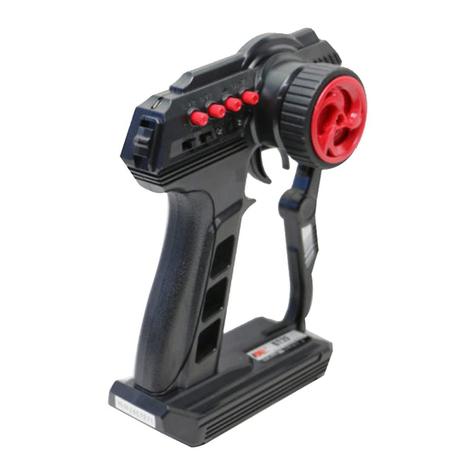
Fly Sky
Fly Sky FS-GT2F instruction manual
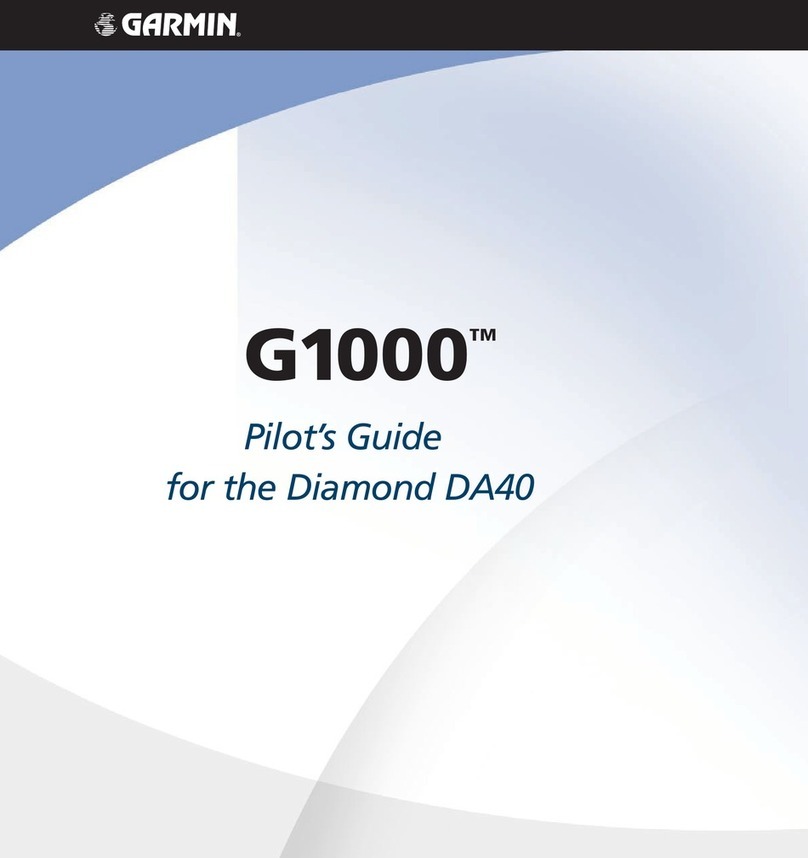
Garmin
Garmin G1000 Series pilot's guide
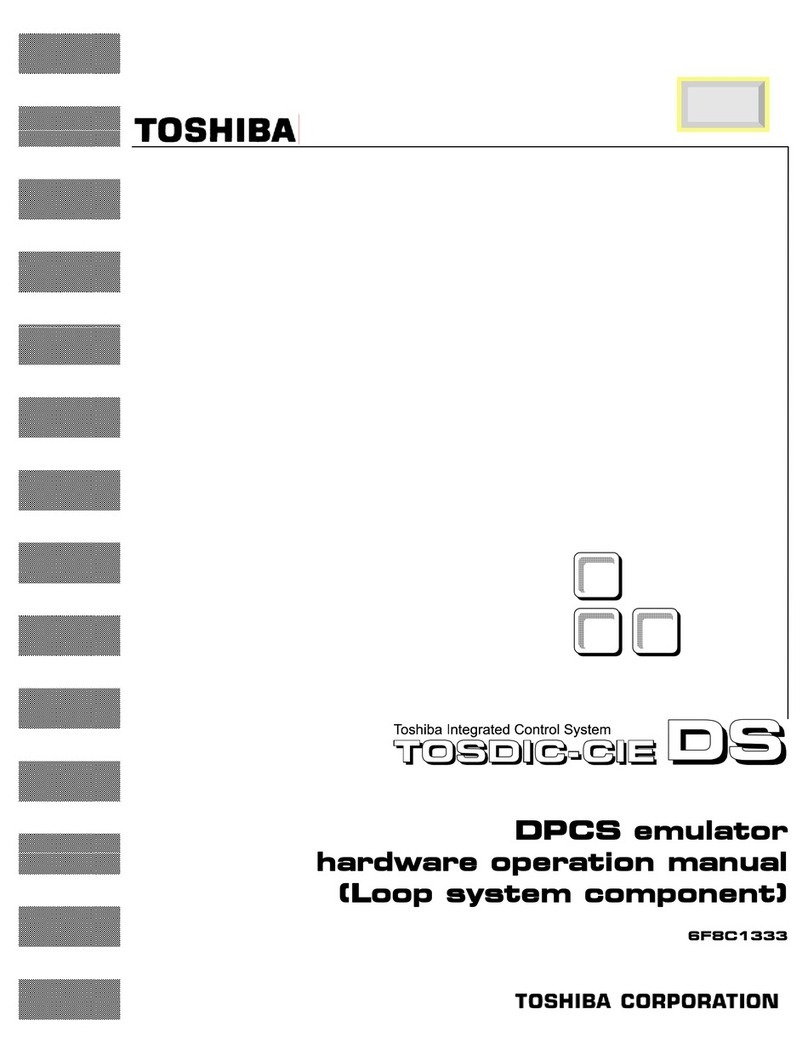
Toshiba
Toshiba TOSDIC-CIE DS Hardware operation manual
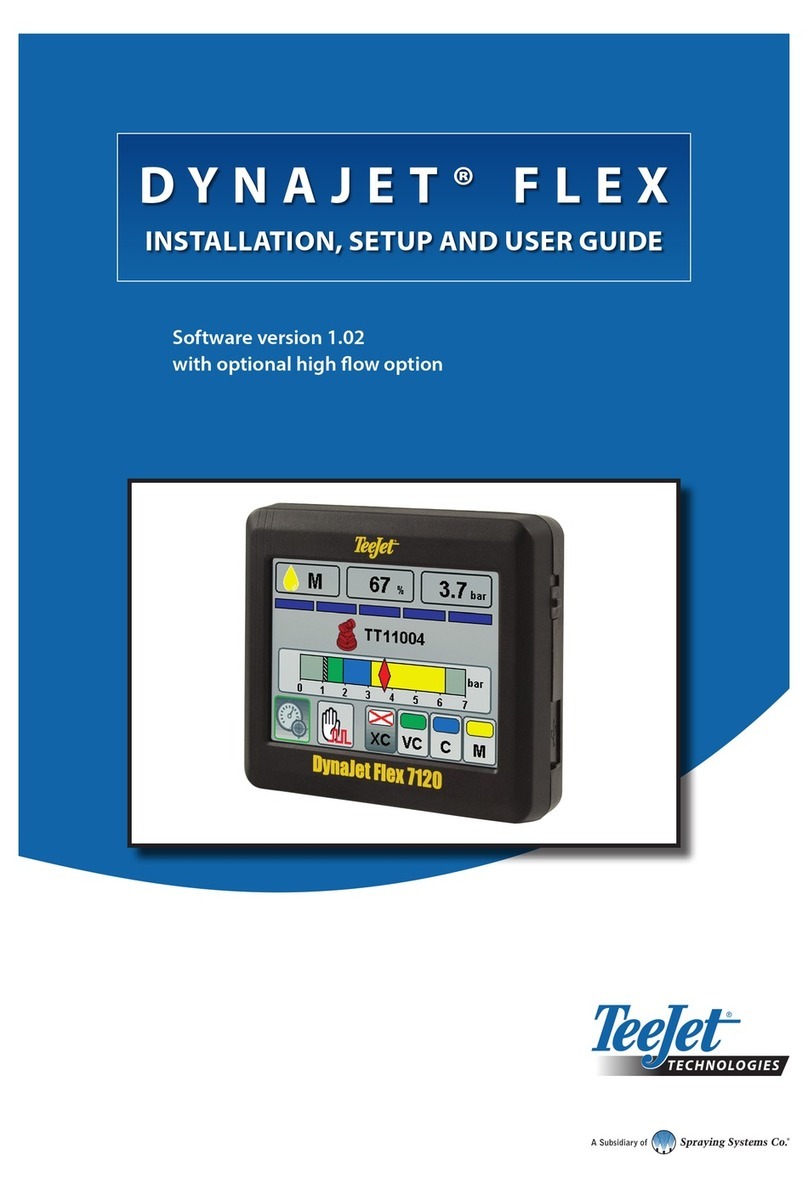
TeeJet Technologies
TeeJet Technologies DynaJet Flex Series INSTALLATION, SETUP AND USER GUIDE
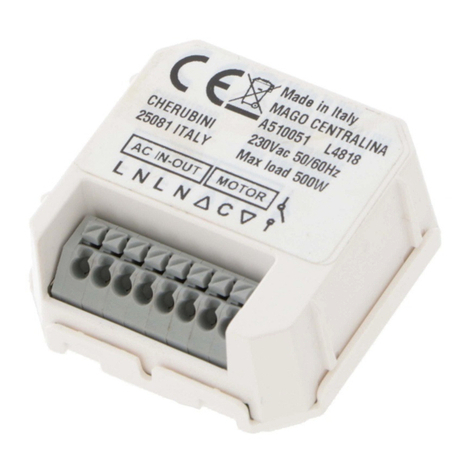
CHERUBINI
CHERUBINI MAGO instructions
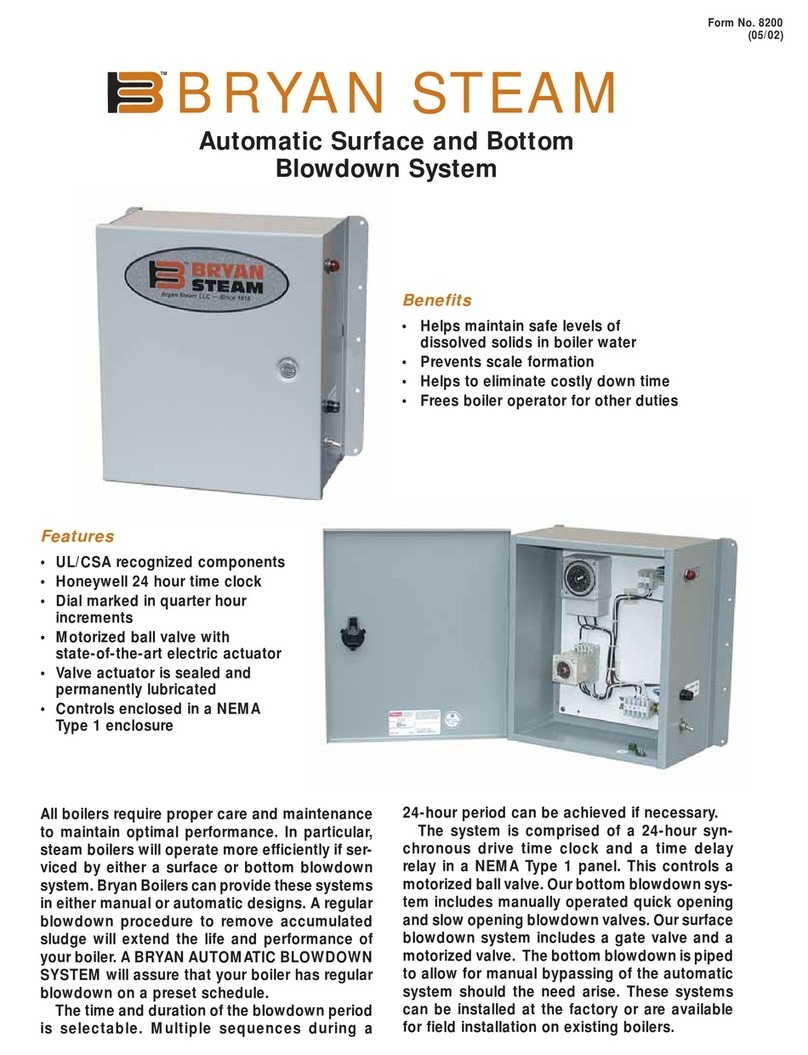
Bryan Boilers
Bryan Boilers CL Series brochure
